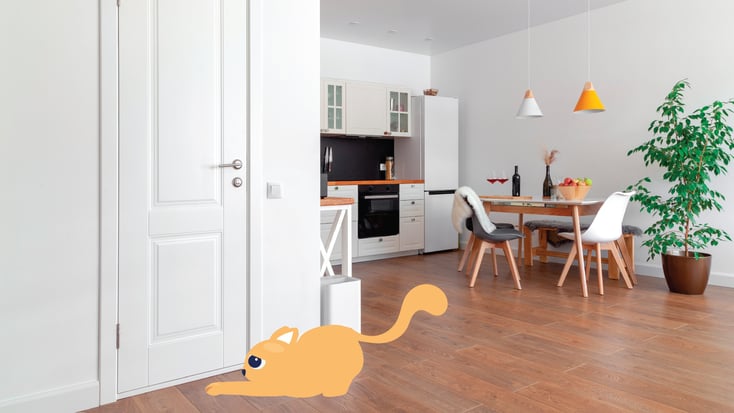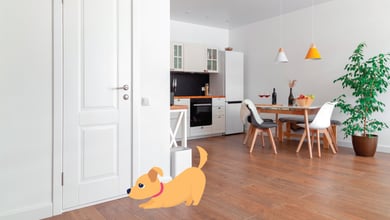As the parent of a kitten, you may wonder how long you can leave them alone. While adult cats are fairly independent, leaving a kitten alone for too long can lead to behavioral and health problems.
In this blog post, we'll explore the recommended amount of time you can leave a kitten or an adult cat home alone and what happens if you leave a kitten alone too long.
How Long Can Kittens Be Left Alone?
Kittens are more dependent on their owners than adult cats are. They require more attention, care, and supervision. Leaving a kitten home alone for too long can cause anxiety, stress, and loneliness. Kittens need to be fed more frequently than adult cats do, and they require playtime and socialization.
A good rule of thumb is that a kitten under six months of age should not be left alone for more than three to four hours per day. Kittens older than six months of age can be left alone for up to 8 hours per day.
If you need to leave your kitten alone for an extended period of time, consider securing them in a safe space, such as a laundry room or another room that is free of all hazards.
Another good option is to hire a pet sitter to check in on your kitten, feed him or her, and play with them when you need to leave home for an extended period of time.
You will want to provide your kitten with plenty of toys to keep them entertained if you are planning on leaving your kitten alone while at work. Cats are natural hunters, so toys that mimic prey, such as toy mice and feathers, can be especially appealing to kittens.
How Long Can You Leave an Adult Cat Alone?
Adult cats are generally more independent than kittens and can tolerate longer periods of time by themselves. However, every cat is different, and an individual cat’s tolerance for being alone will depend on factors such as breed, age, temperament, and medical conditions.
As a general guideline, most adult cats can be left alone for 24 to 48 hours as long as they have access to water, food, and a clean litter box. However, if your cat has a medical condition that requires more frequent attention, they may not be able to tolerate being alone for that long.
If you need to leave your cat alone for an extended period of time, it's important to make sure they have sufficient food and water to last them the entire time. Consider using an automatic feeder to dispense food at regular intervals.
You should also have multiple litter boxes available for your cat to use. For peace of mind, you may want to ask a neighbor to check on your cat daily or hire a pet sitter to make regular visits while you are away.
Consult Your Veterinarian
Leaving your kitten or cat alone for too long can cause anxiety, stress, and loneliness. Kittens require more care and attention than adult cats do and should not be left alone for more than two to three hours per day. Adult cats can tolerate longer periods of time alone, but their tolerance will depend on factors such as breed, age, temperament, and medical conditions.
As a general guideline, most adult cats can be left alone for 24 to 48 hours as long as they have access to food, water, and a clean litter box. Schedule a virtual vet visit you to determine a safe plan for your kitten or cat while you are away from home.
Frequently Asked Questions
Can I leave my kitten alone overnight?
No, you should not leave a kitten alone overnight. Kittens require more attention and care than adult cats do and should not be left alone for more than two to three hours per day.
Can I leave my adult cat alone for a week?
No, you should not leave your adult cat alone for a week. Even the most independent adult cat needs regular food, water, and litter box cleaning.
Can I leave my cat alone with a bowl of water and food?
Yes, you can leave your cat alone with a bowl of water and food, as long as you're not leaving them alone for an extended period of time. If you need to leave your cat alone for an entire day or more, it's important to make sure they have access to enough food and water to last them the entire time.
How do I know if my cat is suffering from separation anxiety?
If your cat shows signs of distress, such as excessive meowing, destructive behavior, or inappropriate elimination when you're not home, they may be suffering from separation anxiety.
Other signs of separation anxiety in cats may include pacing, hiding, loss of appetite, and excessive grooming. If you suspect that your cat is suffering from separation anxiety, contact a veterinary to discuss ways to address the problem.
We may recommend pet behavior modification techniques and a wellness checkup to ensure your cat is healthy.








